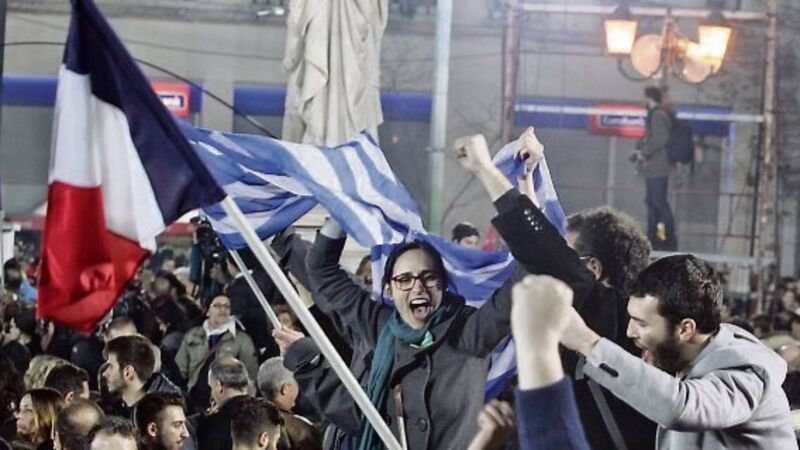Germany must remember its own history when dealing with Greece

He opens as his train stops on the border and he is surrounded by children begging for food:
“The children ran forward – not noisy and squabbling like Dublin ragamuffins scrambling for a penny, but still, very quiet and rather timid. They reached up and took the food, and said, “Danke schon” or “Thank you” – perhaps according to their degree of experience in the business. They did not eat the food. They looked at it with hungry eyes and tucked it away carefully in their bags. They were not working for themselves but for the family. That was my introduction to occupied Germany. All the way down through the cities of the Ruhr the children appeared every time the train came to one of its numerous stops, only they became thinner and more ragged as we moved further on. Behind them we saw the ruins – the twisted wreckage of bridges, the lines of rusty, burned-out railway wagons, the great heap of rubble with a metal dome labelled Dortmundhof perched on top like a juggler’s ball. It is the ruin – the colossal, fantastic, unimaginable vastness of the ruin – that impresses one first in Germany and that ends by overwhelming the mind completely.”















